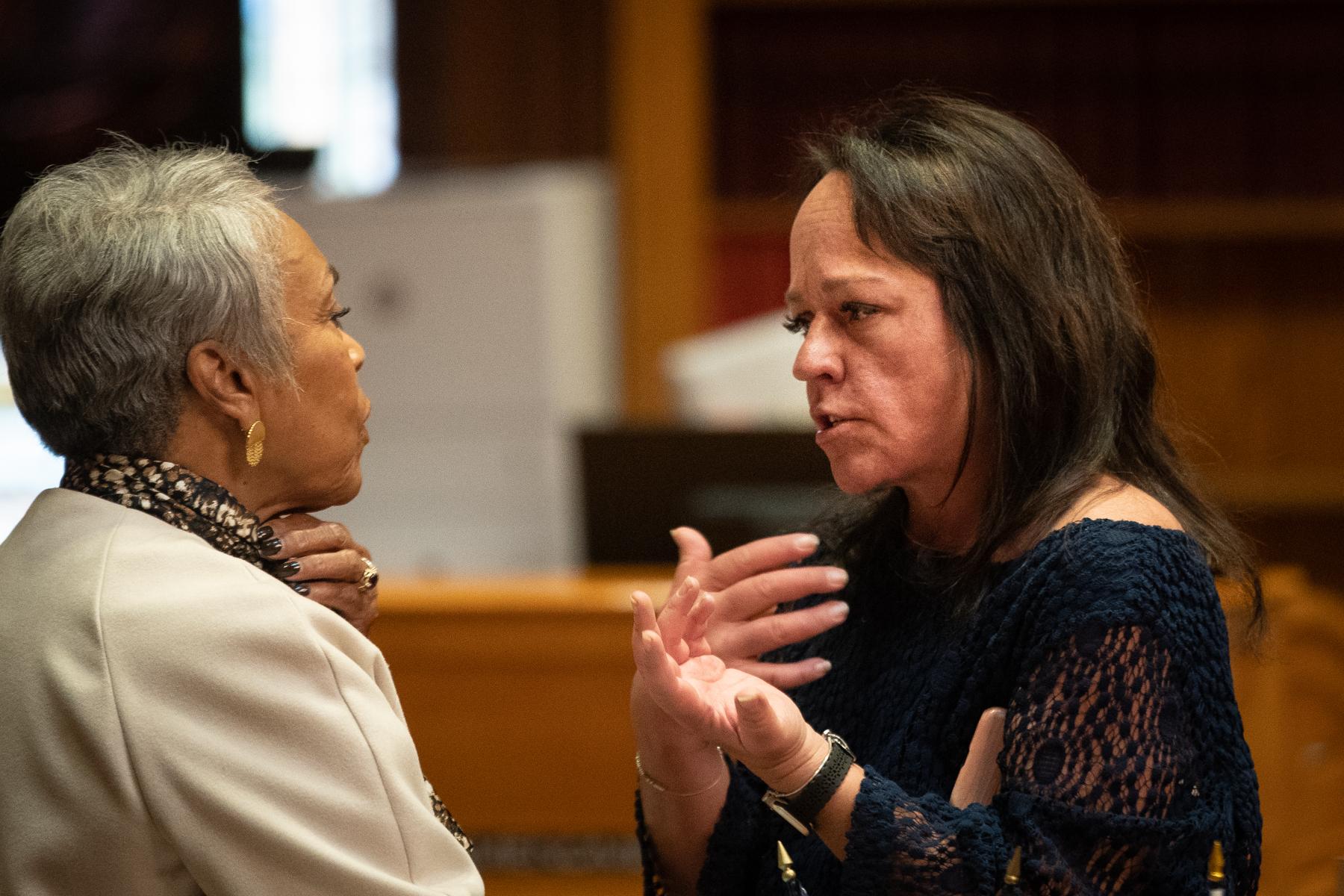Originally published on February 26, 2014 10:29 am
The market for legal recreational marijuana in Colorado is booming, and the state is expecting millions of dollars more in tax revenues that initially projected. That has lawmakers grappling with the best way to spend all of that additional cash.
It could be as much as $100 million and there’s no shortage of ideas.
While he didn’t support the underlying amendment to legalize marijuana, Governor John Hickenlooper clearly has his own ideas on how to spend the money.
“Governor Hickenlooper is very concerned about some of the evidence that points to permanent memory loss for underage use,” said Henry Sobanet, Director of the Governor’s Office of State Planning and Budgeting. “He believes that an impact like that can affect their whole life for some fleeting moments of enjoyment.”
To that end the Governor wants to put nearly $45 million into youth prevention programs. For instance a statewide campaign focusing on the dangers of marijuana, putting more health and substance abuse specialists in public schools, and additional money for addiction treatment and programs.
“I think the question we have, the $100 million question we have in the legislature is are those monies going to the programs that will make the most effective use of those funds?” said Representative Dan Pabon (D-Denver).
He’s working on a bill to create a task force to study a long-term solution to the question of how best to spend the money.
“We’re seeing a potential projection of a billion dollars in sales for the first two years. I think we’re going to have law enforcement issues, diversion issues,” said Pabon. “The Governor’s budget is a good starting point. You’re going zero to 60 on a lot of these so we need to make sure they’re ready to implement and use the resources wisely.”
It’s up to state lawmakers to approve the budget for legalized marijuana related expenses from education, to public health and law enforcement. Republican representative Cheri Gerou sits on the joint budget committee and wants more details on the Governor’s proposal.
"[Be]cause $45 million is a lot of money," said Gerou. "I’ve never seen a marketing or educational campaign at the state level that entailed that much money. I’m trying not to judge it."
But others are judging it, and harshly.
A leading player in the effort to legalize marijuana, Mason Tevert with the Marijuana Policy Project worries that Colorado will go overboard on its education campaign and end up demonizing marijuana for everyone.
“If funds are going to be spent on marijuana related prevention and education that discussion needs to include alcohol and prescription drugs,” said Tevert. “There’s no reason to flush money down the toilet to tell adults it’s bad to use marijuana.”
Budget director Henry Sobanet says there may be some crossovers to other drugs, but says the point is to treat marijuana first.
“We’re trying to get in front of the issue by finding the right messaging, explaining what the impacts are,” said Sobanet. “I don’t see anything we’ve said that’s unfair or contrary to the amendment in the constitution which limits the use to adults, I assume there was a reason for that.”
Others worry there’s too much money slated for addiction treatment and drug counseling altogether, and say there’s a risk in speaking out too strongly against marijuana.
“I think too many times we’ve overstated the harms and that’s what led to youth use,” said Representative Jonathan Singer (D-Longmont). “They experiment and then they see it’s not as bad as it was actually projected, but then they get caught up in a substance that’s not meant for kids.”
The Colorado Department of Revenue will release the first round of sales tax figures in early March. Pueblo County is the first county to release their marijuana tax figures, collecting $56,000 in local sales taxes on nearly $1 million in sales.
Once figures are fully available, lawmakers will then begin to move measures through the statehouse, and debate in earnest what to do with it all.
Copyright 2014 KUNC-FM. To see more, visit http://kunc.org.








